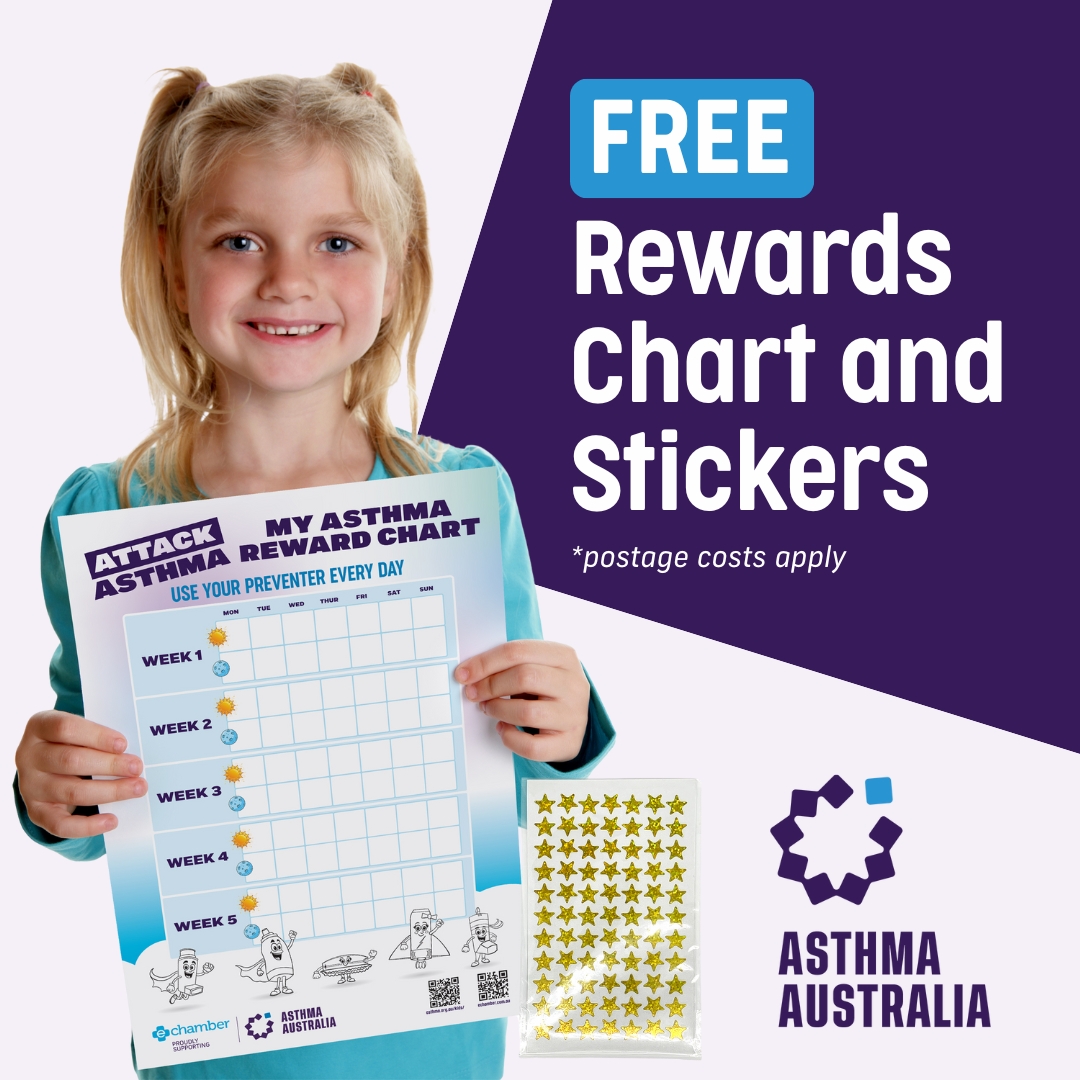What parents should expect – starting kids asthma treatment
When your child first starts asthma treatment, the main goal is to lower the risk of flare-ups and make sure that asthma doesn’t get in the way of sports, play or school. Their doctor will also try to use the least amount of medicine needed to keep their asthma under control.
Reliever

The first thing the doctor will prescribe is a reliever. For children, this is often a blue puffer (salbutamol) which should be used with a spacer. You can make taking medicine more fun by letting your child decorate their spacer with stickers. Singing songs, counting or practicing on teddies or dolls also helps make using the spacer fun. You could even let your child pick out a special pencil case or bag to keep their devices clean and safe. Always keep the puffer and spacer with your child.

Other types of relievers include Bricanyl Turbuhaler (terbutaline) or anti-inflammatory relievers and Maintenance and Reliever Therapy (MART) relievers (which contain budesonide & formoterol).
Your child’s doctor will work with you to come up with an Asthma Action Plan. This should include how much reliever medicine to give them and how to step up their treatment if you need to. Ask as many questions as you need. The Asthma Action Plan needs to work for you and your child. You both need to know what to do if they have an asthma attack.
Preventer

Some children will need a second medicine called a preventer. Whether your child needs a preventer depends on how bad their symptoms are and how often they occur.
If your child does need a preventer, your doctor will try very low dose steroid puffers or a chewable tablet called montelukast. Both can help your child’s asthma, but they may also cause side effects that you should be aware of. Your child’s doctor will talk about the choices with you to make sure the medicine is what’s best for your child. Many parents have questions about potential side effects and this can be a lot of new information to take in, so if you have more questions or just need to talk, reach out to an Asthma Educator on our 1800 ASTHMA (1800 278 462) line.

Treatment trial
Once a child is prescribed a preventer, their response to it needs to be checked. The doctor should see your child again within 4-6 weeks. If the treatment seems to be working well and your child is having less symptoms, you should set a review date in six months. If your child’s asthma hasn’t changed or only got a little better, the doctor will change or adjust the treatment.
Regular reviews
Once the doctor has found a treatment that is working for your child, you should keep seeing your child’s doctor every six months for an asthma checkup. Many doctors bulk bill all visits for children. Book ahead after each visit, so you always get the same doctor.











